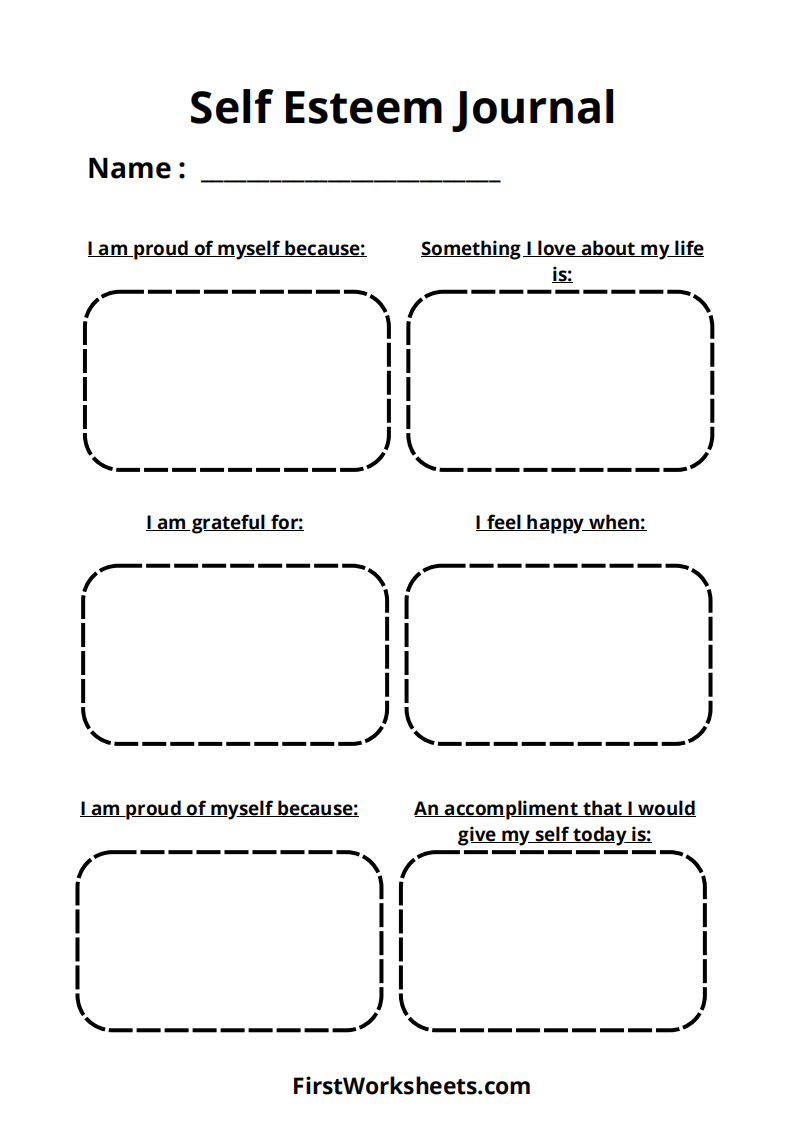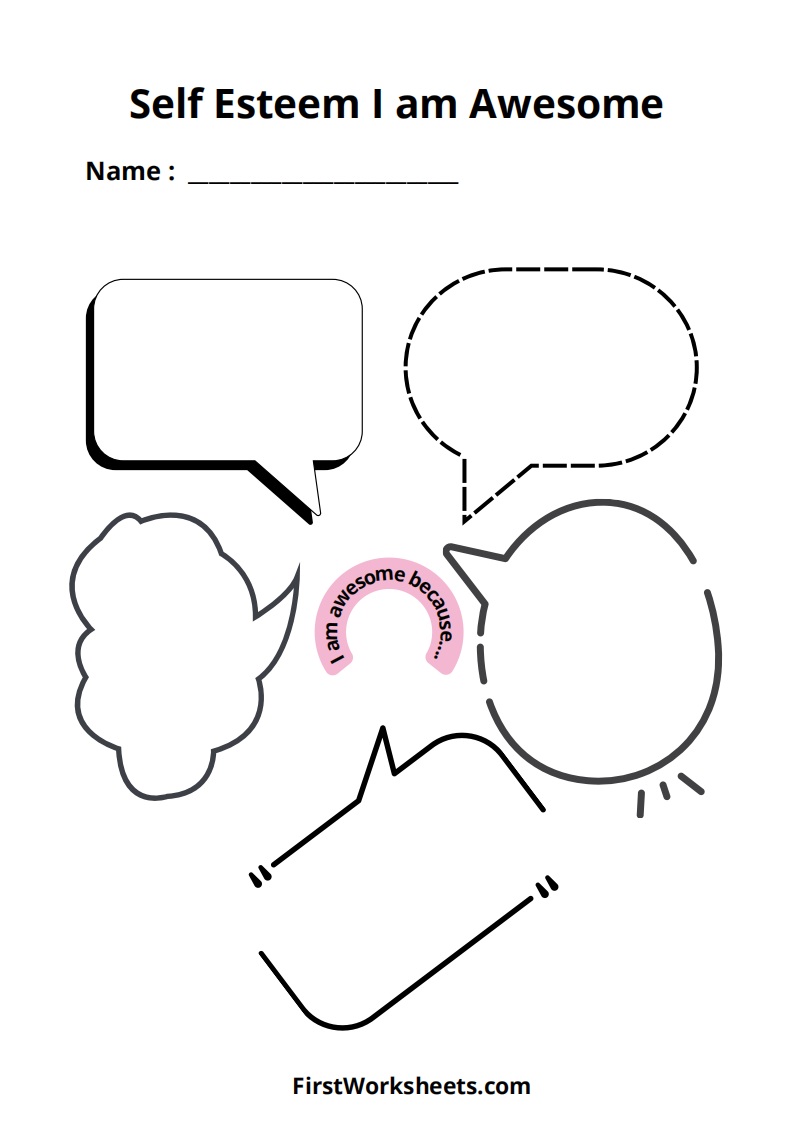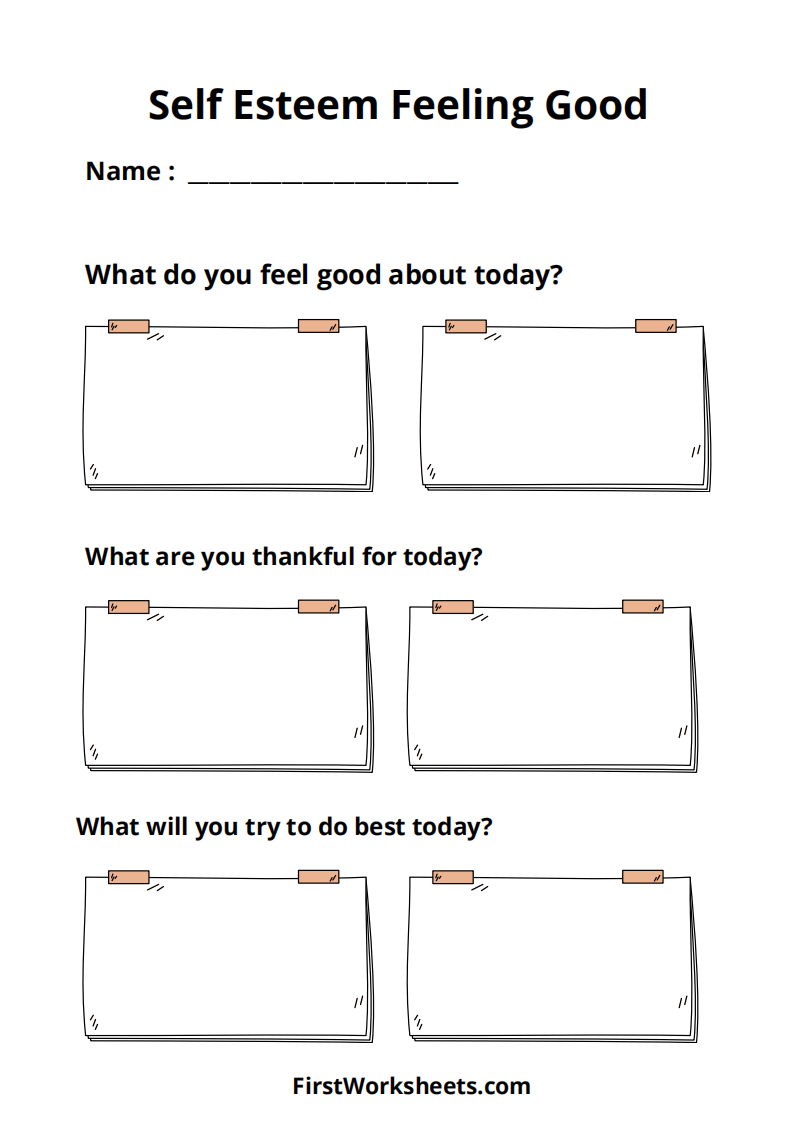Self Esteem Worksheets
Self-esteem worksheets are powerful tools designed to help children develop a positive self-image, build confidence, and foster a sense of self-worth. These worksheets can be used in educational settings, therapy, or at home to support a child’s emotional and psychological development. Here’s an in-depth look at what these worksheets involve and how they can benefit children.
Purpose of Self-Esteem Worksheets
Self-esteem worksheets aim to help children:
- Recognize their strengths: By identifying what they are good at, kids can build confidence in their abilities.
- Understand and manage emotions: Children learn to express their feelings in healthy ways and understand that emotions are natural.
- Set and achieve goals: Worksheets encourage kids to set realistic goals and celebrate their achievements, fostering a sense of accomplishment.
- Develop positive self-talk: Through various exercises, children learn to replace negative thoughts with positive affirmations.
- Enhance social skills: Worksheets often include activities that promote empathy, cooperation, and understanding of others, which can improve a child’s social interactions.
Types of Self-Esteem Worksheets
Self-esteem worksheets come in various forms, each designed to address different aspects of self-esteem:
- Affirmation Exercises: These worksheets guide children in creating positive affirmations about themselves. For example, a worksheet might prompt them to write down things they like about themselves or things they are proud of.
- Emotion Identification and Expression: These worksheets help children identify different emotions and express how they feel. Activities might include matching emotions to facial expressions or drawing pictures to represent their feelings.
- Strengths and Weaknesses Exploration: These activities encourage kids to list their strengths and areas they find challenging. By acknowledging both, children learn that everyone has unique qualities and that it’s okay to need help in some areas.
- Goal-Setting Sheets: Goal-setting worksheets help children identify personal goals and break them down into manageable steps. This process boosts self-esteem by showing children that they can achieve their goals through effort and persistence.
- Compliment Chains: This group activity involves children writing positive comments about their peers. It helps children see the good in others and themselves, fostering a supportive environment.
- Self-Reflection Activities: These worksheets guide children to reflect on their actions, behaviors, and thoughts, helping them develop self-awareness and an understanding of how their actions impact themselves and others.
Benefits of Self-Esteem Worksheets
When used consistently, self-esteem worksheets can provide numerous benefits:
- Improved Confidence: By recognizing their strengths and achievements, children can develop a more positive self-image and increased confidence.
- Better Emotional Regulation: Understanding and expressing emotions can help children manage their feelings more effectively, leading to better emotional health.
- Enhanced Social Skills: Activities that promote empathy and understanding of others can improve a child’s interactions with peers and adults.
- Resilience: Building self-esteem helps children develop resilience, allowing them to cope with challenges and setbacks more effectively.
Examples of Self-Esteem Worksheet Activities
Here are a few specific examples of worksheet activities that can be used to boost a child’s self-esteem:
- My Strengths and Talents: A worksheet where children list their strengths, talents, and things they enjoy doing.
- Positive Affirmations: A worksheet that guides children to write down positive statements about themselves, which they can repeat daily.
- Goal-Setting Ladder: A visual representation where children draw steps leading to a goal, with each step representing an action they need to take to achieve it.
- Compliment Corner: A space where children write or receive compliments, helping them see their positive traits through others’ eyes.
- Emotion Matching: A worksheet with faces showing different emotions that children match to scenarios or their own experiences.
Self-esteem worksheets are valuable tools that can make a significant difference in a child’s emotional and psychological development. By helping children recognize their strengths, express their emotions, and develop positive self-talk, these worksheets lay the foundation for a healthy, confident self-image that can benefit them throughout their lives.





